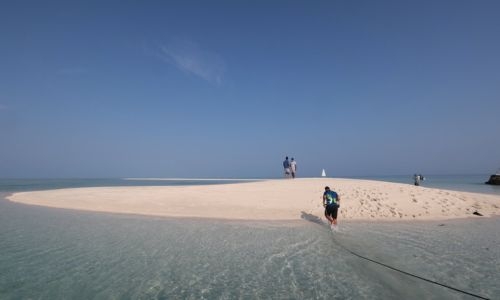Bahrain Needs Fortified Eco Tourism Norms
By Kota A Sriraj
Recently the Bahrain Tourism and Exhibition Authority (BTEA) reported a remarkable 51 per cent surge in tourism during the first half of 2023, signalling the Kingdom of Bahrain’s emergence as a coveted global tourist hotspot.
From January to June 2023, Bahrain welcomed an astounding 5.9 million visitors, a substantial leap from the 3.9 million tourists recorded during the same period in the previous year.
The fact that Manama has been officially designated as the GCC Tourism Capital of 2024 means that this year too will continue the rising tourism trend.
This phenomenal tourism upswing shows Bahrain’s growing attraction as a premier destination for travellers worldwide.
Bahrain’s commendable future vision and investment in infrastructure has successfully developed the Kingdom not only as a tourist hot-spot but also as a market for international investment.
Inspite of the growing environmental challenges and climate change, Bahrain situated in the heart of the Arabian Gulf has preserved its biodiversity, marine life and controlled the ambient temperatures.
This in turn has helped the international community to appreciate the pristine ecology, unique blend of culture, history, and modernity and make Bahrain its preferred destination whether it is for work or pleasure.
But the rising tourist traffic will need Bahrain to fortify and update its eco-tourism practices and norms so that the environment and natural resources of the nation are not impacted by the tourist deluge.
As a part of this a series of initiatives can help Bahrain script a new chapter in handling high volume tourism without compromising on delicate ecology and biodiversity.
For Instance, the use of single use plastic can be actively discouraged for the tourist sector and public or electric vehicle transport must be incentivised.
This will reduce the tourist carbon footprint for Bahrain.
Bahrain can also encourage the tourists to spend a zero-carbon holiday by providing them with eco-friendly options such as guiding them to stay at hotels that are 100 per cent eco-friendly.
The tourism industry must also be encouraged to go paperless and practice responsible plastic waste disposal, increase waster water recycling and rely more on renewable energy.
This will ensure that the tourists visiting Bahrain are in turn able to appreciate and follow the same norms thereby protecting the environment.
These steps will also help create a positive international opinion about the proactive steps taken by Bahrain to safeguard environment.
As a part of the efforts to make eco tourism practices robust, Bahrain can also start initiatives that combine tourism with environmental conservation.
For instance, interested tourists can be encouraged to plant trees in designated areas in Bahrain. These trees can be named after the particular tourist or their loved ones.
This will not only promote urban afforestation in Bahrain but will set an outstanding example for other nations to follow.
Bahrain’s new age ecotourism strategy can help ensure a complimentary role for tourism in environmental conservation.
(The views and opinions expressed in this article are those of the author and do not necessarily reflect the official policy or position of the Daily Tribune)
Kota Sriraj
Related Posts


